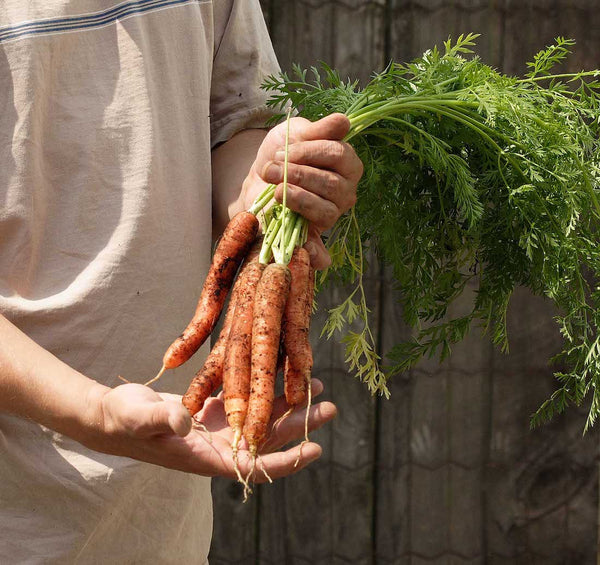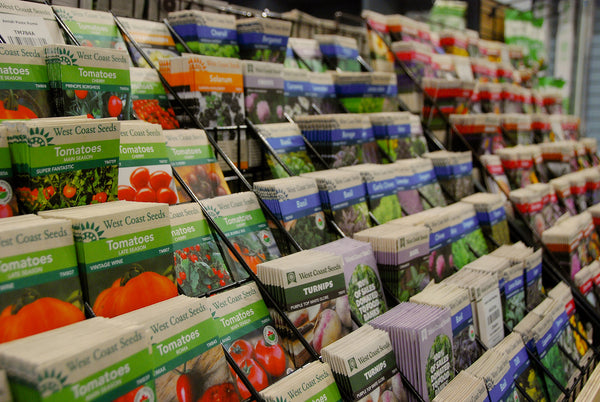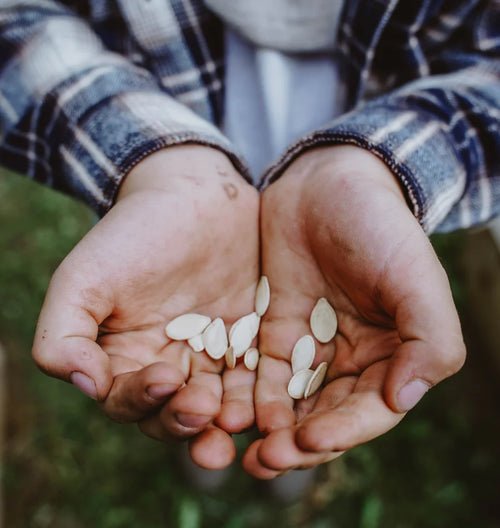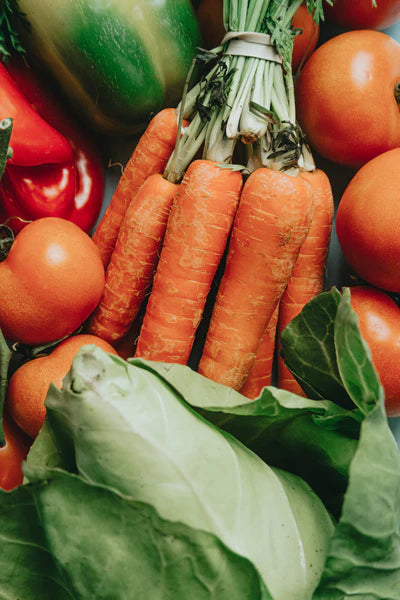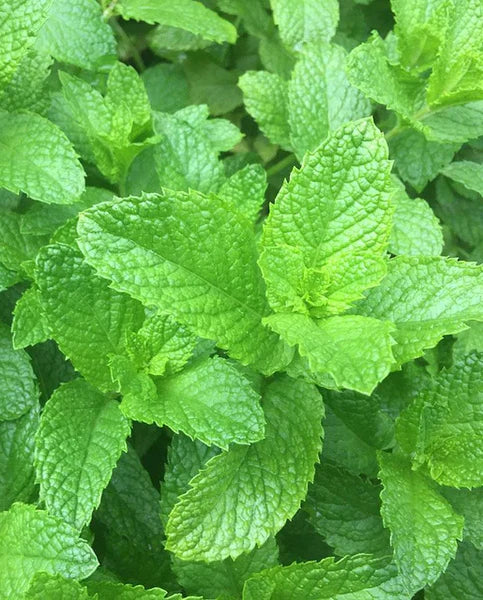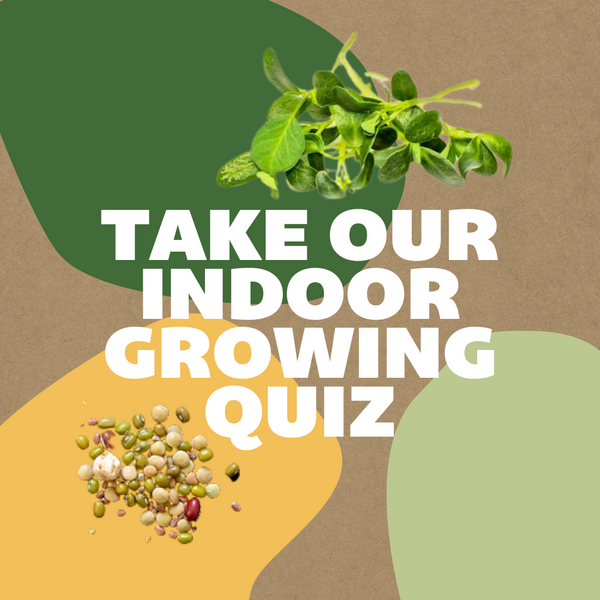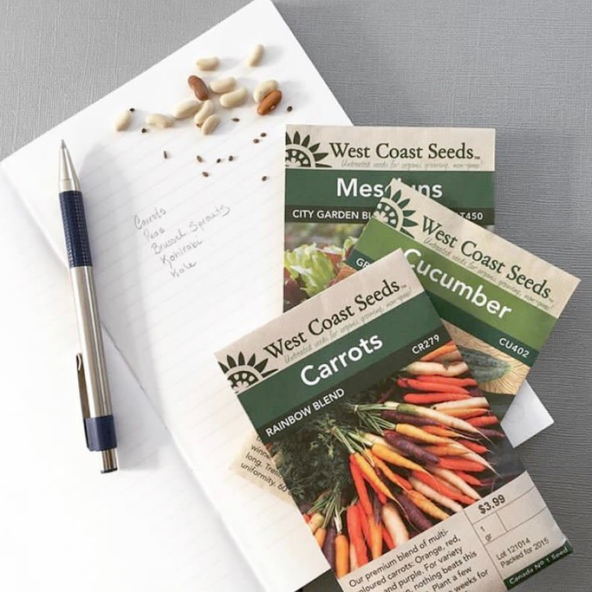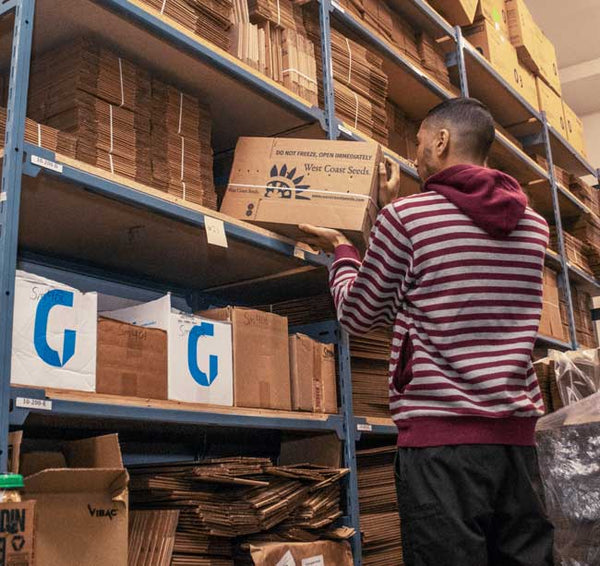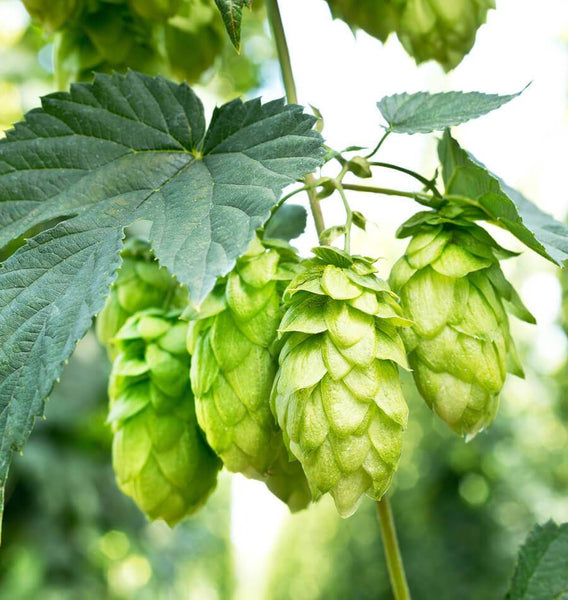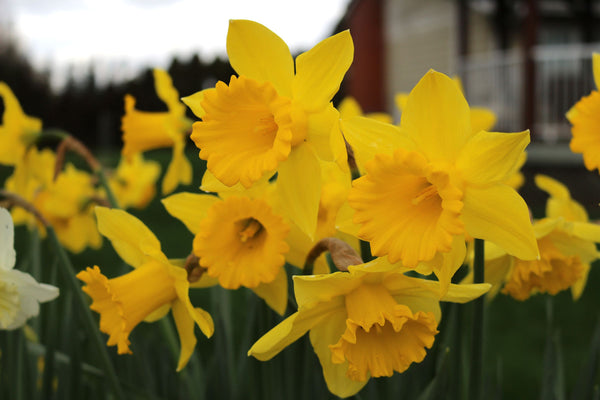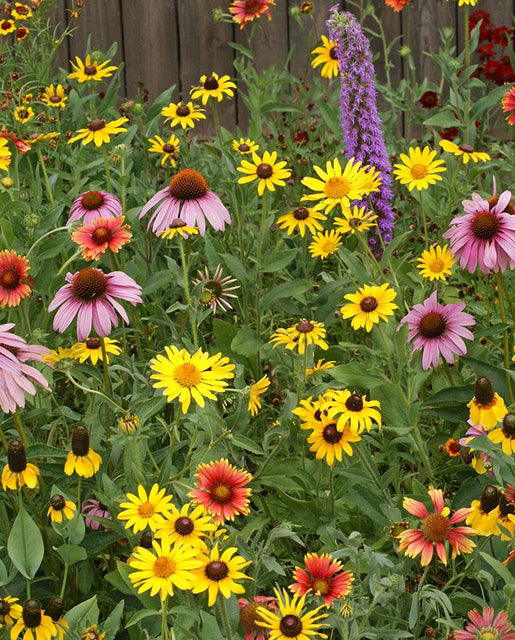Site Selection: If there are already no plants (including weeds) growing in the planting site, there may be a problem with the soil. Possible issues may be soil fertility, lack of drainage, or the need for soil amendments to improve texture. In such spots (eg, beneath a cedar tree), few plants will thrive, including wildflowers.
Site Preparation: Remove as much existing vegetation as possible through pulling or tilling under in order to minimize competition. Loosen the soil by scraping, raking, or tilling. Wildflower blends will not usually take if planted into existing lawn because the thatch prevents their contact with soil.
Seed Application: In small areas, seeds can be scattered by hand. In larger areas, you may want to employ a lawn spreader or some other mechanical means. We recommend adding 1-2 parts clean, dry sand to 1 part wildflower seeds which will help the seeds spread evenly. Do not use beach sand, as it usually contains salt. It may be wise to spread most of the seed, but to save some for filling in bald spots at a later date. Seeds must come into contact with the soil in order to germinate. Do not bury seeds more than 2-3 times their thickness.
Planting rates: Aim for a planting density of 70 seeds per square foot. 90g of seeds will cover 1,000 ft². Use 4kg per acre. 500g covers about 5,500 ft². If seeding an area where site preparation and weeding are not possible, double this rate.
